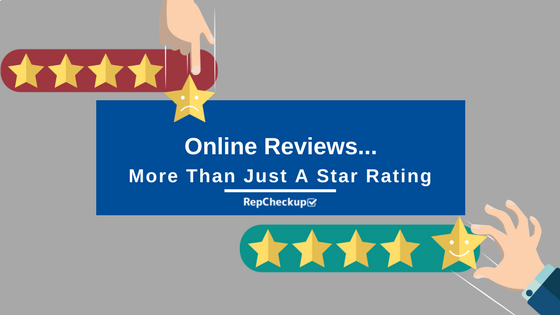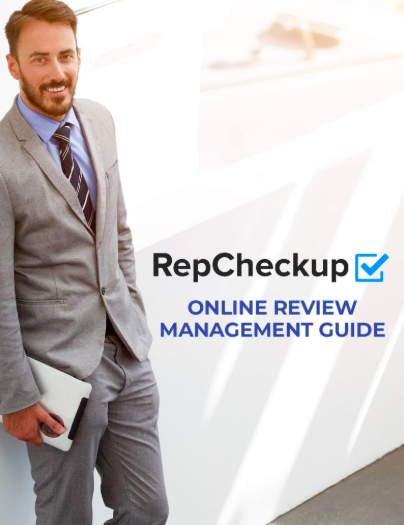
Why Some Review Websites Don’t Want You to Ask for Reviews

As I was working on a blog outlining how you can flag reviews on Yelp, Google, and Facebook, I noticed something that caught my attention: Yelp openly displays a link called “Why You Shouldn’t Ask for Online Reviews” on their reviews page.
This piqued my interest as I knew that Yelp, like other review platforms, is working to prevent their site from being overrun with fake, bribed, or otherwise inauthentic reviews.
RepCheckup allows business owners to get real feedback from customers through online review solicitation, and so I wanted to take a deeper look at how Yelp might view organic reviews, incentivized reviews, and solicited reviews.
The Difference Between Organic Online Reviews and Asking for Reviews
When it comes to getting online reviews, there are quite a few different ways customers could be led to leaving reviews on your various business profiles. Though the goal is to present potential customers with a realistic view of your company, not all review-gathering methods are created equally – and some could definitely influence the type of reviews you’re gathering in a way that violates the terms of service for these sites.
The Organic Online Review
When a customer of yours goes onto Google, Yelp, Facebook, ZocDoc, or other review websites, completely on their own to leave a review, this is known as an organic review.
Whether this customer has deliberately sought out your business’s review profiles because they’re driven by an extremely bad experience or because they had a positive experience that really impacted them, these customers have gone to one profile or another to leave their experience online for others to see.
Organic reviews are, ultimately, the goal. Every business owner would love to have each and every one of their customers take time out of their day and leave a review about their business. However, getting the ball rolling on organic reviews can be difficult as it is left completely up to the discretion of your customers. And, if you aren’t in a review-heavy industry like food and retail service, your customers may not be thinking about reviews at all.
The Incentivized Online Review
The other route that many business owners take to get reviews to their website is by incentivizing customers to leave a review. This happens in the form of a discount or gift-card being given in exchange for a positive review being left.
Unfortunately, this happens all too frequently and it’s also against the terms of service of these review platforms. After all, these websites seek to provide a place for customers to go and leave their reviews for potential customers to view when making a decision about where they should spend their money. This means that they want the reviews available on each business profile to be authentic and not at all incentivized.
When you offer a discount or other “reward” for leaving a review, you are pressuring that client to leave you a positive review. If that customer came back to claim their gift card and showed you a negative review, would you want to give it to them? If your answer is no, which is most likely is, then you can clearly see the issue of offering incentives for reviews.
The Solicited Online Review
Unlike incentivized reviews, reviews that are solicited do not offer any discounts or rewards for a review that is left. These campaigns are run with the intention to remind customers that you’re interested in getting their opinion about their experience and direct them to a specific professional profile where they can post their review.
One of the most important things that make solicited reviews different is the fact that they are not guaranteed to be positive or 5-stars. Because customers are not pressured into leaving a positive review, like they are in incentivized reviews, they are free to leave their unbiased opinion on your profiles.
This is what RepCheckup aims to facilitate. By simply sending a text or email reminder to clients that their feedback is important to you, and linking them to a specific profile, there’s no push toward a specifically positive review. In the end, this links up with what these platforms are aiming for: unbiased, honest reviews that may be somewhat of a mixed bag! Not every client will have an incredible experience, so you may get some 3-stars along with your 4 and 5-star reviews because clients are comfortable enough to leave a review reflecting the reality of their experience.
As a business owner, you should always be looking for ways to improve as well as ways to congratulate your team when they do something great. Honest reviews are one way to get the feedback necessary to improve and give kudos to your team.
Why Some Websites Don’t Want You to Ask for Online Reviews
In the end, some websites will state that they don’t want you to ask for reviews as a whole because it can be difficult for some business owners to toe the line between organic, incentivized, and solicited reviews.
If you want to best maintain your online reputation, make sure you are working in the best interest of your customers and potential clients by looking at reviews as a way to improve your business. Make sure that you’re following the guidelines of these websites so that the symbiotic relationship between the platforms, business owners, and customers who are frequenting these sites!








